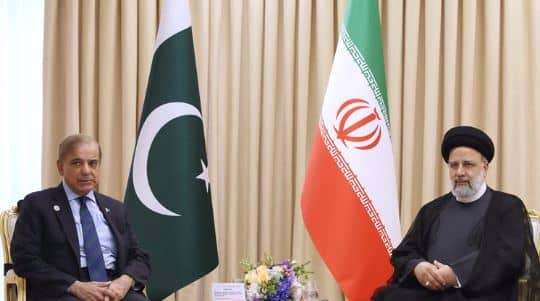On Tuesday night, Iran carried out missile strikes hitting targets in Pakistani territory.
Iran says the strikes targeted Jaish al-Adl (“Army of Justice”), which they say found refuge in Pakistan. Iran tied the group to Islamic State and held them responsible for a suicide-bombing attack in Iran that killed 91 people on 3 January. It said it had responded to “credible intelligence of impending large-scale terrorist activities.” It called on Pakistan to stop “terrorists” establishing bases in its territory.
On Thursday, Pakistan fired missiles back against Iran. The strikes, Pakistan said, hit “terrorist hide-outs” belonging to the Balochistan Liberation Army and Balochistan Liberation Front. Iran says the strikes killed nine people.
Both countries were of course outraged at one another and recalled their ambassadors. That is, until Friday, when talks led both countries to return their ambassadors and apparently normalise diplomatic relations.

The rapid normalisation raises the question: surely Iran was quite content with strikes against Balochistan liberationists inside its territory, just as Pakistan could not have been too unhappy about Iran striking a blow against Jaish al-Adl. If each government had fired such military weapons at “their own people,” so to speak, it would be seen as a heinous crime damaging to both governments’ international legitimacy.
There is an element of ethnocultural difference from the nation-states of Iran and Pakistan in the border region, known as Balochistan. In its review of events the BBC is telling the inspiring story of a decades-long Balochi resistance and supposed human rights abuses by the Pakistani government in Baluchistan. And of course, in the BBC version, this resistance only began in 1948 at the end of British rule.
This Western backing of the Balochistan rebels, whether its stays rhetorical or becomes something more substantial, makes sense too. Balochistan is in fact at the heart of a USD $54 billion investment by China in a trans-Himalayan highway and associated port and airport infrastructure. The route connects China to the Persian Gulf via Xinjiang and the newly expanded port of Gwadar, in Pakistani Balochistan.
So there are geopolitical and business figures with an interest in resistance movements in this area. With all those factors in mind, we may be hearing much more about Balochistan in the future.
Feature image courtesy of @muneerok via Unsplash.
Sign Up To Our Free Newsletter